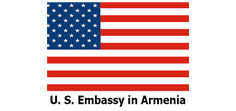On January 18, the National Assembly fully adopted in the second reading the draft law “On Non-Cash Transactions” authored by the government. According to the adopted law, starting from January 1, 2022, every transaction exceeding ֏ 300 thousand must be carried out non-cash by private entrepreneurs, notaries, lawyers and organizations, and the threshold for non-cash transaction for natural persons is set at above ֏ 500 thousand. The draft law was adopted in the first reading on November 17, 2021.
During the second reading, MP Khachatur Sukiasyan spoke on behalf of the Civil Contract faction. The latter mentioned in his speech that non-cash transactions are first of all for the fight against the shadow economy․ “The bank is a blood vessel, presently the economy of Armenia is in a very good condition ․․․ and 300 thousand is still a very high amount, and it must be reduced in the future,” Sukiasyan said in his speech.
It is noteworthy that Khachatur Sukiasyan, who has a significant stake in Armeconombank, speaks on behalf of the Civil Contract faction on the draft law on increasing non-cash banking transactions. Sukiasyan stated in his declaration as a candidate for MP that he has ordinary (12․02%) and privileged (5.75%) shares in the Armeconombank, totaling 17․83%, and the annual dividend was 57․3 million drams.
The increase in non-cash transactions after the entry into force of the Law on Non-cash Transactions will contribute to the increase in banking transactions, and consequently to the profitability of banks. |
According to Article 4 of the Law on Guarantees of the Activity of a Deputy of the National Assembly of the Republic of Armenia, “being guided by the personal interests of a deputy or a person affiliated with him/her means coming up with a legislative initiative, submitting a draft decision, statement or message of the National Assembly, making a proposal regarding an issue in circulation, as well as speaking at a sitting of the National Assembly or its committee, asking questions or participating in a vote, which is legal in itself, but the deputy is aware or should have been aware that it leads or contributes or can reasonably lead or contribute to improvement of the property or legal status of his/her or the person affiliated with him.”
According to the same law, in case of a conflict of interests, the deputy is obliged to make a statement on the conflict of interests before speaking or voting at the sitting of the National Assembly or the committee he/she is a member of.
Sukiasyan was absent during the voting of the first reading of the bill, but during the second reading he both spoke and voted in favor.
When assuming the post, Sukiasyan mentioned that he had transferred Armeconombank’s share to trust management, but the bank’s official website states that 71.85% (14․1 billion drams) of the bank’s fully paid share capital belongs to the Sukiasyans, who are the bank’s ultimate controller. Saribek Sukiasyan, Khachatur Sukiasyan’s brother, is the Chairman of the Board of Armeconombank OJSC, therefore, if not Sukiasyan, then at least people affiliated with him have a significant stake in Armeconombank.
Is there a conflict of interest or not?
According to clause 5 of Article 4 of the same law, “when interpreting the provisions of the conflict of interests, it is considered that the deputy is not guided by the personal interests of himself/herself or a person affiliated with him/her, if he/she acts on behalf of the National Assembly committee or faction or the given action has universal applicability and affects the general public in such a way that it cannot reasonably be interpreted as being guided by the personal interests of an MP or a person affiliated with him/her.”
According to this clause of the law, the listed deputies technically do not have conflict of interests, as Khachatur Sukiasyan spoke on behalf of the CC faction (it is not ruled out that the right to speak on behalf of the faction was reserved for Sukiasyan for this very reason). In addition, the law may affect the general public.
However, it should be noted that in fact, 71.85% of “Armeconombank” belongs to Khachatur Sukiasyan’s family; the applicability of the law will improve their financial situation.
In conclusion, that taking into account the significant share of Khachatur Sukiasyan and his affiliates in Armeconombank, his active participation in the discussion and voting of the laws improving the financial situation of the banks is at least problematic although speaking or voting on a bill does not, according to the wording of the law, cause a conflict of interest
Narek Martirosyan

 FACTOMETER
FACTOMETER












